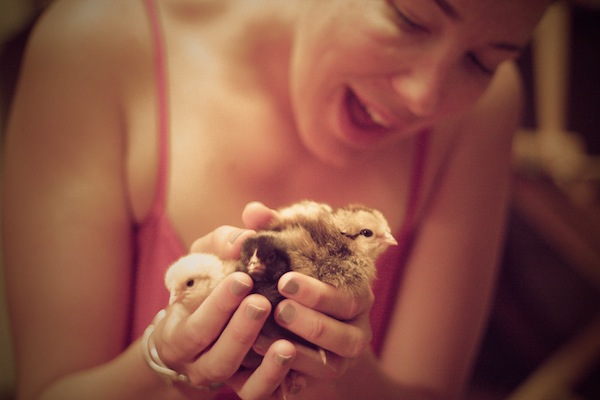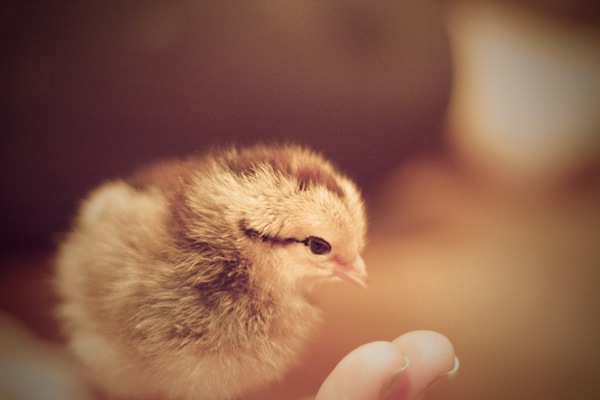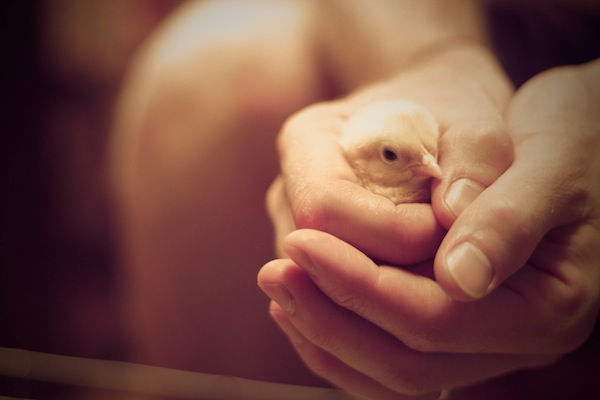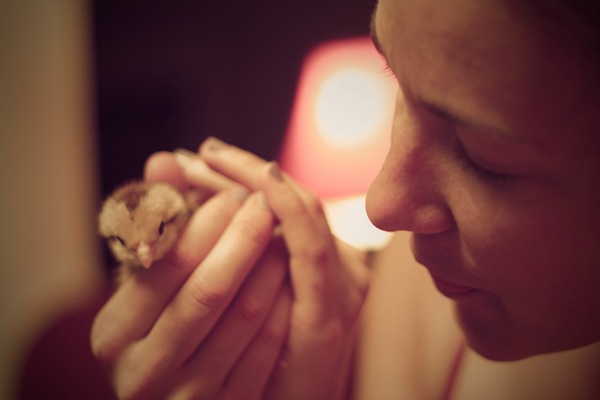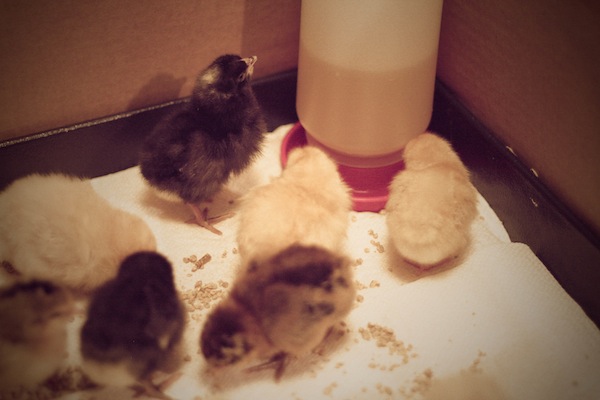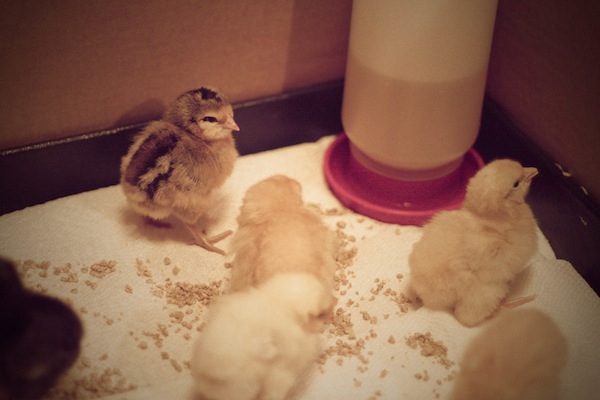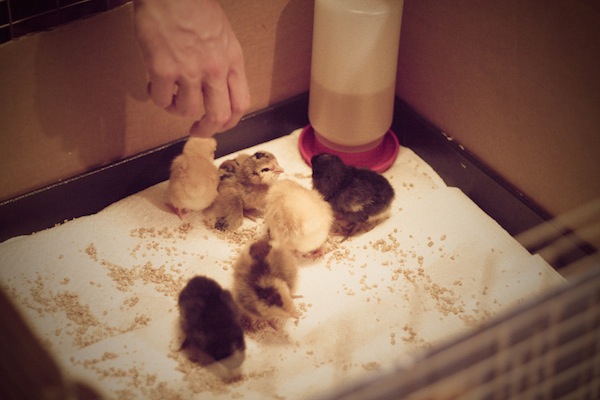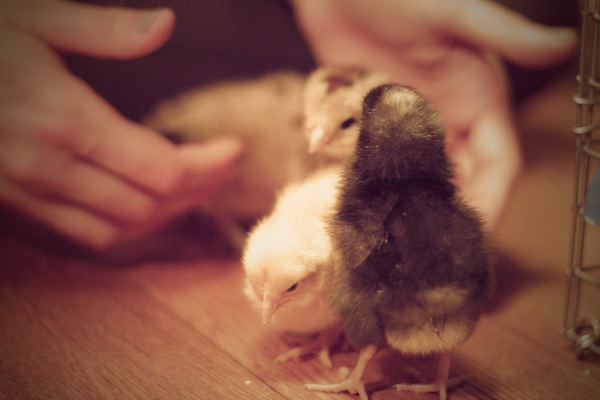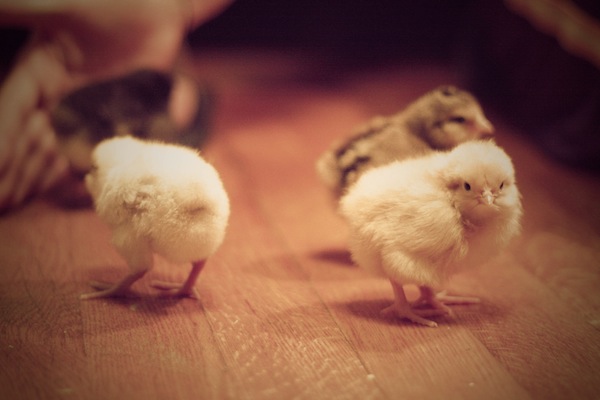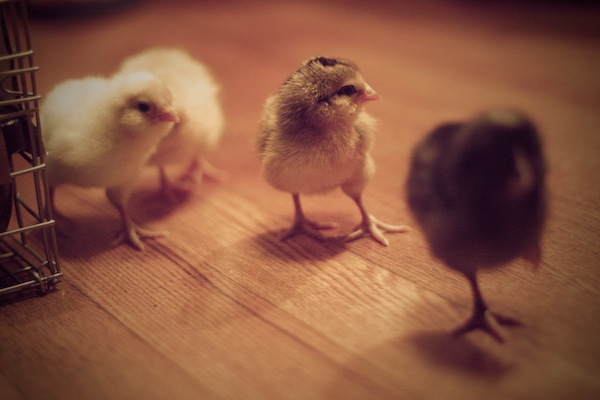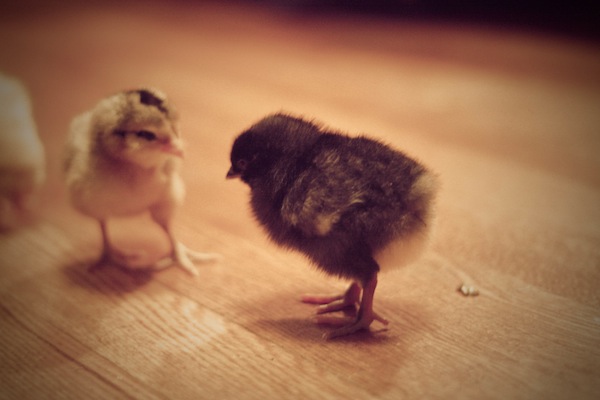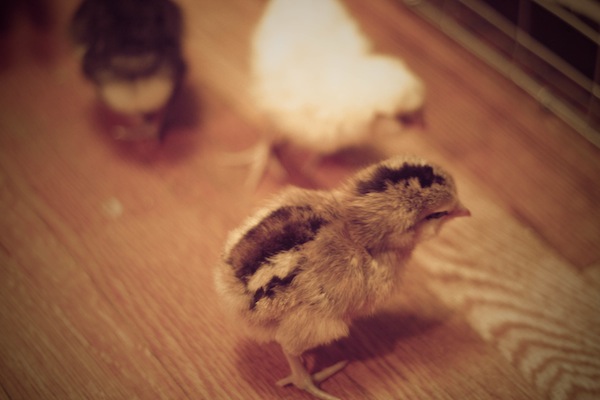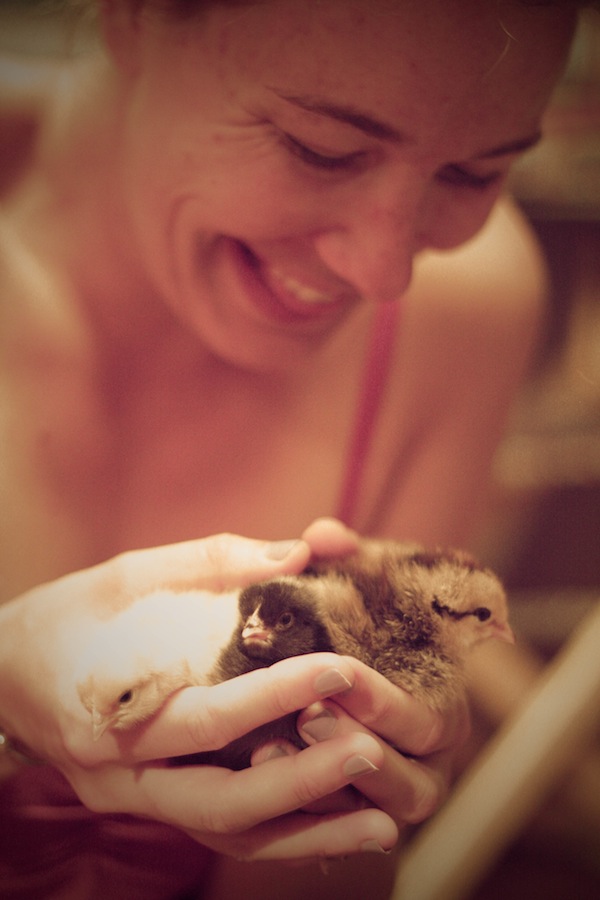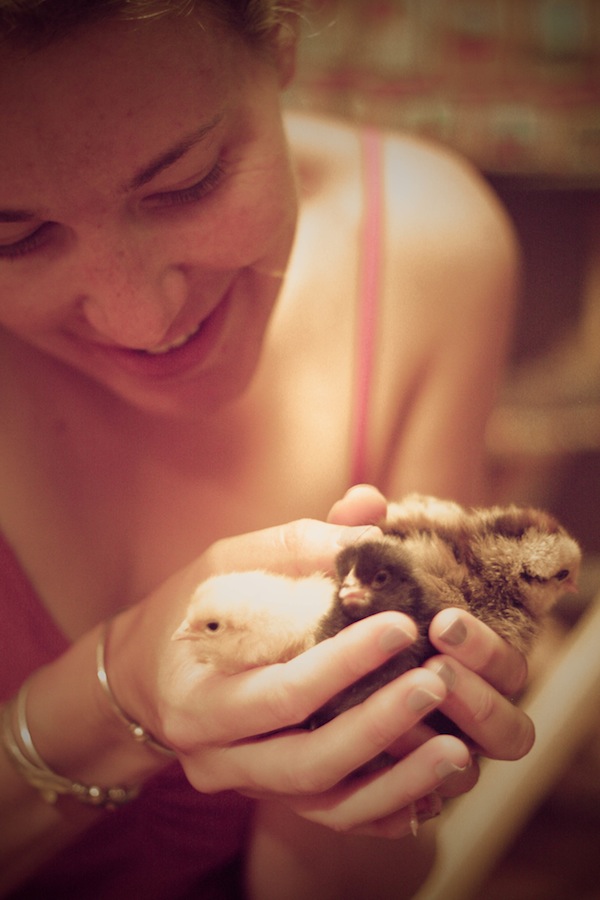Chickens: Day 1
This is happening in our household.
It’s been a dream two years in the making. Honestly, when I had made prior requests for chicken ownership, James had responded with threats of divorce.
Apparently chickens were off limits.
But then we purchased Cartwheel Farm, complete with barn and a stall already outfitted with a swanky chicken coop. And he relinquished.
Smart man.
So yesterday morning, a small cardboard box filled with 15 freshly hatched baby chicks arrived to Vermont.
The adorable meter in the house is off the charts. As is the bodily fluids meter. The chaos meter. And the chick (ha!) meter.
Just in case James wasn’t already feeling outnumbered, we paid insurance to guarantee that only pullets (female baby chicks) were sent to our doorstep. There was no way we were welcoming a rooster into our family. The Carts? We are not morning people. Nor did we want Hanna in a sparring match with a rooster.
Three of the chicks are headed to a friends home. The other 12 will remain at the farm.
The fluffy yellow chicks are Buff Orpingtons. For anyone that has eaten at The Forge, now you understand the name of their wings. These gals will lay brown eggs. The black chicks are Sunny’s favorite and they’re Plymouth Barred Rocks that will be zebra striped when they reach maturity and will also lay brown eggs. And the speckled chicks are Ameraucanas, a funny looking bird, that will lay blue and green eggs.
FOR REAL!
Each breed was chosen because of their calm, tame nature. None of them are known for their high egg production, but these 12 chicks will produce more than enough eggs for our family of four. Primarily, I want them to make sweet, productive pets for the family. I’d say that they’re off to an excellent start.
Peep peep peep! Hapeepy weekend to all!
Photos: Courtesy of Ashley Weeks Cart
